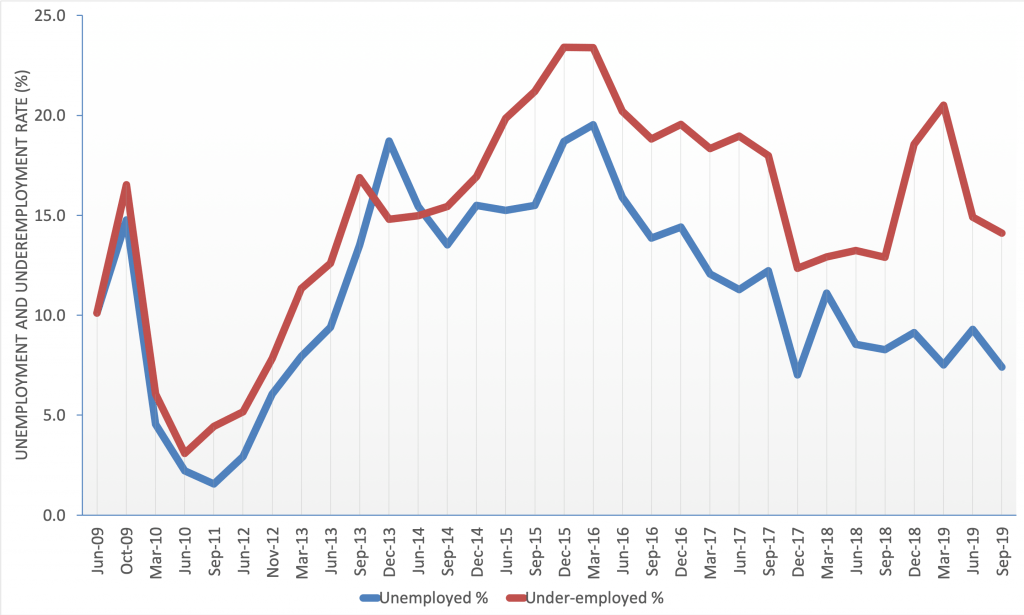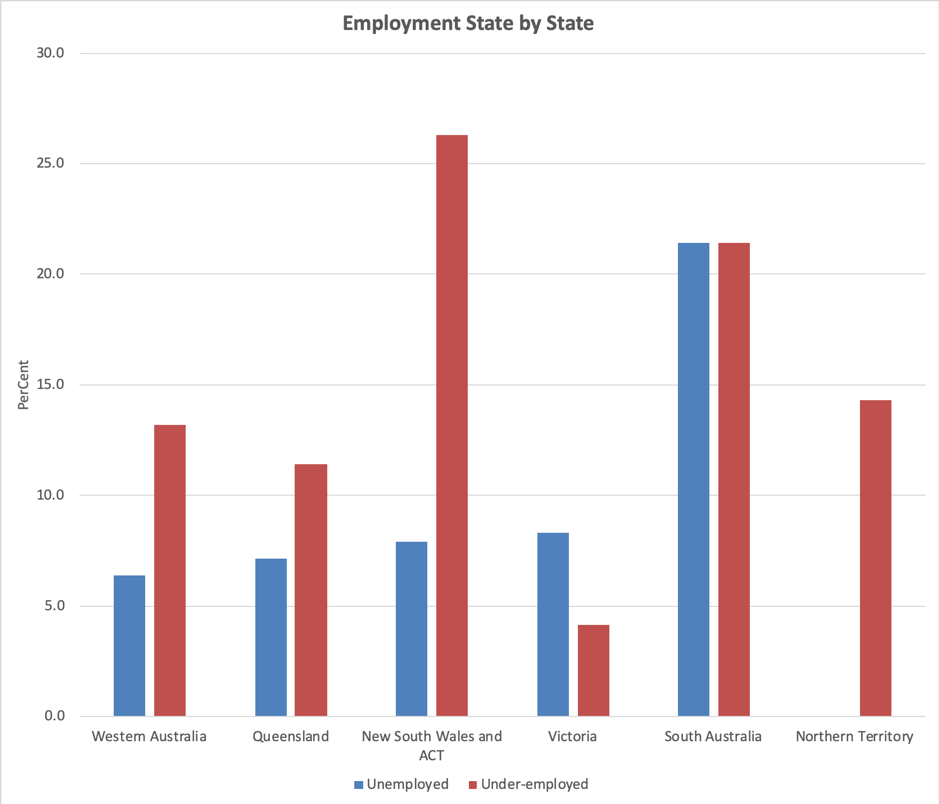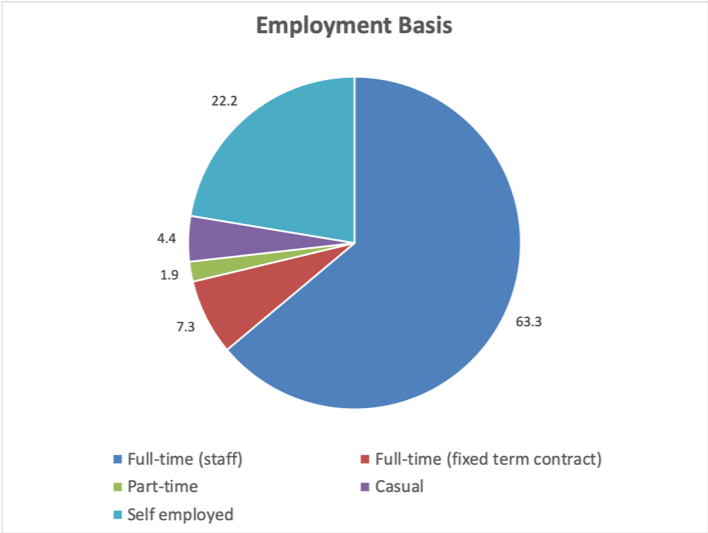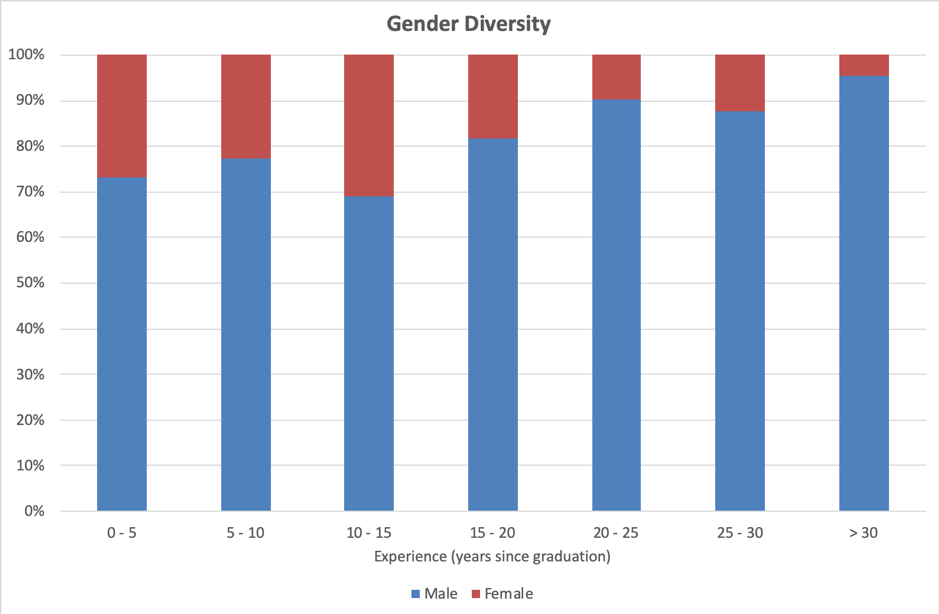Australian geoscientist employment improved marginally in the third quarter of 2019.
The latest AIG Australian Geoscientist Employment Survey revealed that unemployment amongst Australian. geoscientists fell to 7.4% at the end of September, down from 9.3% at the end of July. The underemployment rate also fell to 14.1%, from 14.9% for the same period.

Australian geoscientist employment – June 2009 to September 2019
The survey results, at a national level, continue a gradually improving trend evident since March 2016, but the rate of improvement appears to have slowed since March 2018.
The number of long-term unemployed geoscientists continued to increase with 47% of unemployed and under-employed geoscientists having little to no work for more than one year, or more than two years for 34% of respondents.
AIG President, Andrew Waltho, welcomed the continued improvement in both the unemployment and under-employment rates, with the reservation that the rate of improvement remains slow. “The most disappointing and serious statistic is the proportion of long term unemployed and under-employed geoscientists” Mr Waltho said. “AIG and kindred professional institutes continue to promote the need to recognise the high-level scientific skills possessed by this pool of experienced professionals that can be applied in a broad range of fields where an ability to understand and interpret Earth systems and processes is valuable”. “In the meantime, AIG continues to provide members with effective and accessible opportunities for members to maintain and expand their professional networks and undertake continued professional development” Mr Waltho said. “Members accessing these opportunities are actively working to resurrect their careers and value this support” he said.
The unemployment and under-employment rates amongst geoscientists in Australia varied substantially between states.
Unemployment amongst geoscientists decreased in Western Australia, Queensland, New South Wales and the Australian Capital Territory, but increased in Victoria and South Australia. The greatest improvement in unemployment was evident in Victoria. No Northern Territory respondents responded as being unemployed. Too few responses were received from Tasmania for state results to be reported.
Under-employment, defined as respondents being able to attract less than 25% of their desired workload, decreased in Queensland, Victoria and South Australia but increased in Western Australia, New South Wales and the Australian Capital Territory, and the Northern Territory. The lowest under-employment results was evident in Victoria.

Australian geoscientist unemployment and under-employment by state – September 2019
Almost 71% of respondents reported being full-time employees, on staff or fixed term contracts. Only 3% work part time and between 4% and 5% are casual employees. Self-employed geoscientists comprise 22% of the profession.

Australian geoscientist employment basis – September 2019
Geoscience remains a male dominated profession in Australia.
Some 85% of survey respondents were men and 15% women. One respondent identified with neither gender. There are relatively more women pursuing geoscience careers in Australia in the 0-15 years experience groups, with the highest proportion of women responding to the survey having between 10 and 15 years experience.

Gender diversity in Australian geoscience – September 2019
“Clearly, more needs to be done to attract women to geoscience careers, and retain women in the profession with more than 15 years experience if gender equity is to be achieved” Mr Waltho said. “It’s a serious issue, central to the public recognition vitality of the geoscience profession that will take concerted and committed action by all geoscientists in Australia to address”.
The next employment survey will open for contributions in early January 2020. AIG values the continued support of both members and non-members who take a few minutes to complete the survey each quarter and encourages as many geoscientists working in all sectors of the profession in Australia to contribute.